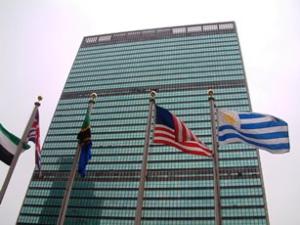Uruguay legalized marijuana in 2013. Canada legalized it last week. In doing so, both countries put themselves in clearly violation of the UN anti-drug treaties that are the legal backbone of global drug prohibition. The US arguably continues to do so through state-level legalization accommodated by federal practice.

Still, the 1961 UN Single Convention on Narcotic Drugs and its 1971 and 1988 follow-ups are global agreements, and while an argument can be made that countries that want to legalize marijuana or other drugs should just ignore that provision -- say, on the basis that they are prioritizing the human rights treaties -- there is a counterargument to be made that it is better to modify or creatively interpret the existing global framework than to merely brush aside the anti-drug treaties.
The good folks at the Transnational Institute's (TNI) Drugs and Democracy program have come up with what they call "an elegant way" to end global prohibition agreements. It's called inter se modification. Instead of ignoring the tension between national-level legalization and the treaties, using this strategy would "resolve those treaty tensions and enable progressive and sustainable change at the global level."
What inter se modification does is allow two or more signatory states to the UN conventions to enter into an agreement among themselves alone. As TNI explains in the video below, a group of countries -- say Canada, the Netherlands, and Uruguay -- could agree to an inter se modification agreement on how marijuana cultivation should take place, how international commerce should be conducted, and education and public health policies, among others.
"These three countries would basically create a mini-treaty of their own, while at the same time respecting the rights and obligations of all state parties that do adhere to the UN drug control conventions," TNI explains. "If other countries wish to legally regulate cannabis after this mini-treaty is agreed on, they are free to join the group and enjoy the benefits accordingly."
Here we have a way to legalize marijuana or other drugs at the national level which at least acknowledges what the UN treaties say about that, and which seeks to minimize the tension that legalization generates in the treaty system. The treaties' provisions calling for prohibition would simply be hollowed out over time as country after country eventually joins the inter se modification agreement. Maybe then there will come a tipping point where the treaties themselves can be amended to reflect the new global reality.
Here's how TNI explains it all:
This work by StoptheDrugWar.org is licensed under Creative Commons Attribution-ShareAlike 4.0 International
Comments
Stop saying legalization violates UN treaties!
The argument that legalization violates international treaties is garbage. You should be better informed.
Single Convention on Narcotic Drugs, 1961 (As amended by the 1972 Protocol)
Article 36(2) “Subject to the constitutional limitations of a Party, its legal system and domestic law, …”
Convention on Psychotropic Substances, 1971
Article 22(2) “Subject to the constitutional limitations of a Party, its legal system and domestic law, …”
Convention against Illicit Traffic, 1988
Article 3(1)(c) “Subject to its constitutional principles and the basic concepts of its legal system:”
Article 3(2) “Subject to its constitutional principles and the basic concepts of its legal system, …”
Are you telling us a country isn't following it's own constitution, legal system, and domestic laws when it legalizes marijuana?
In reply to Stop saying legalization violates UN treaties! by Carl Olsen (not verified)
Elegant solutions require elegant solvers
If people would just read the treaties, it would be much more likely we would have had an elegant solution by now. Pathetic. Someone says we are violating treaties and it just keeps getting repeated, but there's absolutely no truth to it.
Add new comment